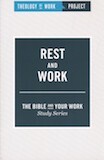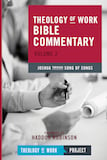Restoration of Covenant Life, Phase Two: Ezra and Nehemiah Together (Nehemiah 8:1-13:31)
Bible Commentary / Produced by TOW Project
After the wall surrounding Jerusalem was completed, the Israelites gathered in Jerusalem in order to renew their covenant with God. Ezra reappeared at this point in order to read the Law to the people (Neh. 8:2-5). As they heard the Law, they wept (Neh. 8:9). Yet Nehemiah rebuked them for their sorrow, adding, “Go your way, eat the fat and drink sweet wine and send portions to him for whom nothing is prepared; for this day is holy to our Lord” (Neh. 8:10). However central work might be to serving God, so is celebration. On holy days, people are to enjoy the fruits of their labors as well as sharing them with those who lack such delights.
Yet, as Nehemiah chapter 9 demonstrates, there was also a time for godly sorrow as the people confessed their sins to God (Neh. 9:2). Their confession came in the context of an extensive recital of all the things God had done, beginning with creation itself (Neh. 9:6) and continuing through the crucial events of the Old Testament. The failure of Israel to be faithful to the Lord explained, among other things, why God’s chosen people were “slaves” to foreign kings and why those kings enjoyed the fruits of Israelite labors (Neh. 9:36-37).
Among the promises made by the people as they renewed their covenant with the Lord was a commitment to honor the Sabbath (Neh. 10:31). In particular, they promised not to do business on the Sabbath with “the peoples of the land” who worked on this day. The Israelites also promised to fulfill their responsibility to support the temple and its workers (Neh. 10:31-39). They would do so by giving to the temple and its staff a percentage of the fruit of their own work. Now, as then, the commitment to give a percentage of our income to support the “service of the house of our God” (Neh. 10:32) is both a necessary means of financing the work of worship and a reminder that everything we have comes from God’s hand.
After completing his task of building the wall in Jerusalem and overseeing the restoration of society there, Nehemiah returned to serve King Artaxerxes (Neh. 13:6). Later, he came back to Jerusalem, where he discovered that some of the reforms he had initiated were thriving, while others had been neglected. For example, he observed some people working on the Sabbath (Neh. 13:15). Jewish officials had been letting Gentile traders bring their goods into Jerusalem for sale on the day of rest (Neh. 13:16). So Nehemiah rebuked those who had failed to honor the Sabbath (Neh. 13:7-18). Moreover, in his typically pragmatic approach, he closed the city gates before the Sabbath began, keeping them shut until the day of rest had passed. He also stationed some of his servants at the gates so that they might tell potential sellers to leave (Neh. 13:19).
The question of whether and/or how Christians ought to keep the Sabbath cannot be answered from Nehemiah. A much broader theological conversation is necessary.[1] Nevertheless, this book reminds us of the centrality of Sabbath-keeping to God’s first covenant people and the threat posed by economic interaction with those who do not honor the Sabbath. In our own context, it was certainly easier for Christians to keep the Sabbath when the malls were closed on the Lord’s Day. However, our contemporary culture of round-the-clock commerce puts us in Nehemiah’s situation, in which a conscious — and potentially costly — decision about Sabbath-keeping is required.














